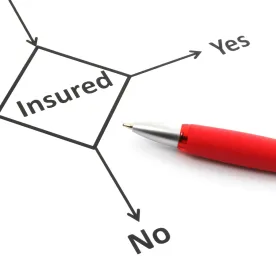Property/Business Interruption Insurance
Litigation in the U.S involving business interruption losses (principally involving whether such losses have arisen in connection with physical loss to property, and whether various exclusions for virus and pandemic apply) is proliferating. Some of the recently-filed cases are noted below.
Five cases v. Travelers and CA Governor (CA) – Mark Geragos, his Los Angeles law firm and several other businesses have sued Travelers claiming the insurer is wrongly refusing to cover claims. The five suits accuse Travelers of failing to honor property insurance policies without a virus exclusion, and which should have been triggered when Los Angeles Mayor Eric Garcetti issued an order closing nonessential businesses on March 15. The suits plead that the "currently raging pandemic" has caused real physical loss and damage around the world and that the CA Governor’s "stay-at-home" order has prohibited access to the properties. The plaintiffs do not expressly seek a ruling that the COVID-19 virus existed at any of the subject properties. It is unclear why the Governor was named as a defendant; it is possible he was named as friendly defendant to give him standing to make statements about why he issued the executive order and that he was concerned about property damage when he did so.
LH Dining LLC v. Admiral Ind. Co. (PA federal court) - A Philadelphia restaurateur alleges that orders closing “nonessential” businesses and dine-in services to prevent the spread of the novel coronavirus triggered “civil authority” coverage of lost income under its commercial insurance policy. Unlike many other claims, this complaint expressly seeks to recover the costs of decontaminating the restaurant in addition to its lost income after state and local authorities shut down dine-in services as part of their efforts to contain the risks of the highly contagious COVID-19.
El Novillo Restaurant Group v. Lloyd’s (FL federal court)(class action) - A restaurant group sued Lloyd's underwriters preemptively for COVID-19 insurance coverage in a proposed class action. The nationwide class seeks a DJ and pleads anticipatory breach of all-risk commercial property policies that do not contain a virus/pandemic exclusion. The two eateries are asking the court to declare that governments' stay-at-home orders to stop the spread of the coronavirus have caused catastrophic business disruptions and must trigger coverage.
Proper Ventures v. Seneca Ins. (Washington, D.C.) - A restaurant sued its insurer alleging the insurer wrongfully denied coverage for loss of business after a local order prohibited the restaurant from seating customers during the COVID-19 pandemic. Mayor Muriel Bowser signed an order (16 March) prohibiting table seating at any restaurants or taverns in the city. Seneca denied the claim, on the basis that the property did not suffer physical damage that caused the closure, and that COVID-19 falls under a virus exclusion. Proper Ventures, however, claims in the suit that it is not the virus but the mayor’s order that closed down the business, arguing that this triggers a civil authority clause in the policy that provides coverage if access to the building is barred by government action. The suit also names the District of Columbia as a defendant, and the restaurateur asked the court for a declaration that the mayor’s order prohibited the restaurant from remaining open and that the loss of business triggers coverage under its policy. Note: Many other complaints argue that coverage should be granted because the policies involved in those cases did not include virus exclusions, whereas Proper Ventures argues it should be granted coverage despite that exclusion because the mayor’s order, not the virus itself, caused the shutdown. However, Proper Ventures will still have to prove that physical damage to property triggered coverage under the policy in the first instance.
Sandy Point Dental v. Cincinnati (IL) - dental clinic, with civil authority coverage, sued for coverage over the loss of business saying that after the state governor ordered all non-essential businesses closed, Cincinnati wrongfully denied coverage for its claim on the grounds that the COVID-19 epidemic did not constitute physical damage that would trigger the work interruption coverage.
Cajun Conti LLC et al. v. Certain Underwriters at Lloyd’s London (Oceana) (LA) (2020) – Restaurateur seeks a declaratory judgment that the all-risks business interruption policy covering its New Orleans restaurants, which include Civil Authority coverage, should respond.
Keller v. Hartford (CA Super. Ct.) – Owner of the French Laundry sued The Hartford for breach of contract – essentially the same allegations as in the Oceana case.
Oklahoma Tribes case (OK Super. Ct.) – Owners of casinos, hotels, etc. sued insurers for breach of contract.
Big Onion v. Society (N.D. IL.) - More than a dozen Illinois restaurants and theatres have filed suit against Wisconsin-based Society Insurance, alleging that the carrier failed to honor business interruption policies triggered by the coronavirus pandemic. The suit also alleges bad faith because the insurer allegedly denied the claim too quickly, i.e. it failed to fulfill its obligation to properly investigate the claims.
Prime Time Sports Grill v. Lloyds’ (FL. Super. Ct.) - Insurer denied coverage for sports bar’s state-mandated closure. Prime Time holds a policy that does not exclude government orders to suspend business. The insurer denied coverage arguing that the policy covers only work stoppages resulting from physical losses and property damage.
SCGM Inc. v. Lloyd’s (TX federal court) - SCGM, which owns a group of theaters, sued its underwriters for a business interruption claim, arguing that there is coverage because the policy contains a “pandemic event endorsement,” which the policyholder purchased after the 2014 Ebola outbreak. The underwriters denied coverage because COVID-19 it is not a named disease under the endorsement. However, the endorsement does cover "mutations or variations" of "Severe Acute Respiratory Syndrome-associated coronavirus [SARS-CoV].”
Mace Marine Inc. v. Tokio Marine (FL) - A scuba diving shop in the Florida Keys sued after it was denied business interruption coverage over the COVID-19 pandemic, saying the “potential contamination” of the shop should be considered a “physical loss” triggering the policy. According to the complaint, as a tourist-driven business, Conch Republic has customers from around the world and has no way of knowing if any of those customers were infected, and must incur costs both as it’s closed down and to disinfect the premises. Mace says Tokio Marine is taking a too-literal view of the policy language, but because the risk of contamination bars access to the building, “acts of civil authority are tantamount to physical loss.” DJ, breach of contract and bad faith are alleged.
[We note that some Governors have issued stay-in-place orders which include statements that they are shutting business down because of property damage. We suspect this was due to lobbying by business policyholder groups. Those policyholders have already stated that they plan to ask courts to accept those statements as evidence in the insurance coverage suits. Moreover, policyholder lawyers have taken an aggressive stance vis-à-vis insurers. For example, from an article in Insurance Journal on April 8: “But even carefully crafted policies may not be enough to protect the insurers, says Robert Zarco, a Miami-based lawyer who represents thousands of McDonald’s, Burger King and Hilton hotel franchisees gearing up to file business-interruption suits. Many policies include civil-authority clauses that kick in when governments bring business operations to a screeching halt, Zarco said. “We have plenty of grounds to argue that’s exactly what happened here and they still have to pay,” he said. Finally, we also note that some insurers have been loosening “unoccupied premises” requirements during the lockdown period.]
Marine Insurance
At least one P&I club has warned ship owners that they may not be able to claim for lost profit if a vessel is delayed due to a quarantine order, as the maritime industry begins a slow recovery from coronavirus-related disruption. The club indicated that it would generally only provide cover for expenses if a vessel was quarantined due to an actual outbreak of COVID-19 onboard the ship. However, the club would be unlikely to pay out because a vessel was quarantined as part of a routine safety measure introduced by a port. Many ports imposed 14-day restrictions on vessels arriving from China in early February.
Commercial General Liability
There will undoubtedly be litigation because of the spike in infections in the hospitality and other industries. In the category of, “we can’t even imagine all the suits that will be filed,” on April 1, a train engineer intentionally drove a locomotive full speed ahead off the end of rail tracks near the USNS Mercy, which was docked after transporting necessary supplies for coronavirus relief efforts to California hospitals. Federal prosecutors charged Eduardo Moreno, 44, with train wrecking, after he allegedly admitted in two separate police interviews that he intentionally crashed the train because he was suspicious of the Navy hospital ship in the dock. "Moreno stated that he thought that the U.S.N.S. Mercy was suspicious and did not believe ‘the ship is what they say it’s for,’” according to the criminal affidavit. The engineer was not a port employee but apparently was working for Pacific Harbor Line Inc., a train company that handles cargo in the port and connects to major railroad lines. There were no injuries; however, the crash caused the train to leak fuel oil, which required clean up by fire and other hazardous materials personnel.
The first known COVID-19 wrongful death lawsuit was filed in Illinois. Lax safety and cleanliness standards at an Illinois Walmart store caused a worker to become fatally infected by the novel coronavirus, according to the lawyer for the deceased worker's family. Wando Evans worked as an associate at a Walmart store. The suit alleges that he and other workers contracted the disease while working at the store, and that the retailer committed "willful and wanton misconduct" by not using workplace safety measures that had been recommended by public health officials to curb the spread of the disease. Toney Evans, Special Administrator of the Estate of Wando Evans v. Walmart Inc. et al., case number 2020L003938, in the Circuit Court of Cook County.
Professional Liability Insurance
D&O insurers are increasingly worried about shareholders, employees or customers bringing coronavirus-related claims against company executives and are considering excluding the virus from policies which protect such personnel, industry sources say. It remains to be seen whether the market will allow such exclusions.
Two cases have been filed in the U.S. in recent weeks accusing companies of making misleading statements about the coronavirus or their coronavirus plans in order to sell products and boost their share price, while cruise operators, for example, are bracing for claims from passengers stuck on ships hit by the virus. A shareholder of Inovio Pharmaceuticals filed a class action complaint on March 16 against the company and its chief executive, citing “misstatements” that the company had developed a coronavirus vaccine in three hours. Meanwhile, a securities fraud class action was filed against Norwegian Cruise Line Holdings, its chief executive and chief financial officer on March 18, claiming the company made misleading statements about the virus to encourage customers to book cruises.
Zoom was sued by a putative class of shareholders for failing to disclose that its service does not include end-to-end encryption. Sen. Markey (MA) sent a request to the FTC to issue guidance and best practices for video conference companies.
Medical Malpractice Insurance
Doctors and hospitals overwhelmed in the pandemic will have to make their excruciating life-or-death decisions meticulously or they risk being second-guessed by a jury when the onslaught is over.
The New York Legislature is expected to approve a bill that would provide hospitals and healthcare workers with broad protections against civil and criminal liability. The proposed legislation would generally shield New York hospitals from malpractice lawsuits at a time when they are having difficulty obtaining ventilators for patients stricken with COVID-19 and protective gear for their staff. These hospitals are forcing shortages so severe that they are forced to make difficult choices about dispensing life-saving resources. New York Governor Andrew Cuomo is expected to sign the measure.
Connecticut’s Governor Ned Lamont signed an executive order that aims to provide some degree of legal immunity to health care workers and facilities such as hospitals and nursing homes as they face life-or-death decisions during the pandemic. Lamont said he was concerned that shortages of needed equipment like ventilators will force medical professionals to make tough choices about patient care. The question will be raised as to whether the governor has the authority to issue such an executive order.
Other Coverages
We are also following coronavirus-related claims under Event Cancellation Insurance, Travel Insurance, Health Insurance, Cyber Insurance, and Reinsurance. We would be happy to provide further information on such claims, on request.
Regulatory Issues
Mutual insurers were the first to kick off the trend of returning premiums to auto insurance policyholders (because they are required to). Non-mutuals are jumping on the band wagon to get ahead of regulators’ calls for premium adjustments. While the mutuals are actually sending checks, the non-mutuals seem to be giving credits when the policyholder renews, which has the added benefits of retaining customers and holding/investing the premiums for a longer period of time. Some commercial insurers have started following this trend.
The New York Department of Financial Services has requested that property and casualty insurers preemptively explain their insurance policies, relevant to COVID-19 coverage, to policyholders with information and developments surrounding business interruption and related coverage written in New York.
Multiple States, including NY - New York Governor Andrew Cuomo has issued an order preventing carriers from canceling, non-renewing or conditionally renewing insurance policies. Even more states have recommended or mandated leniency in late premium payments.
Multiple states – have required that auto insurers cover personal autos for commercial purposes – this is aimed at, but not limited to, people making food, pharma, and other deliveries until the public health emergency orders in those states have been lifted.
New Jersey, New York, Mass. and Ohio - Proposed legislation has been introduced which would eliminate the ISO virus exclusion (previously approved years ago). The proposed New Jersey bill would also initiate a special purpose apportionment that would force business interruption carriers to spread the cost of the coronavirus claims they cover over the other non-business interruption carriers that conduct insurance business in New Jersey. The draft NY bill mandates that contracts be interpreted as providing business interruption coverage for COVID-19 related losses. Pennsylvania is weighing proposals that would force insurers to pay out for COVID-19 BI claims – even if a policy excludes pandemic cover.
Federal - On April 1, the CEO of Marsh, John Doyle, wrote to US Congressional leaders as well as the Trump administration proposing a backstopped pandemic risk insurance program (PRIA) that would be structured as a risk-sharing model between policyholders, insurers and the federal government. Discussions of such a program, which would establish a viable insurance market with sufficient affordable capacity to cover the exposure, are ongoing.





 />i
/>i

